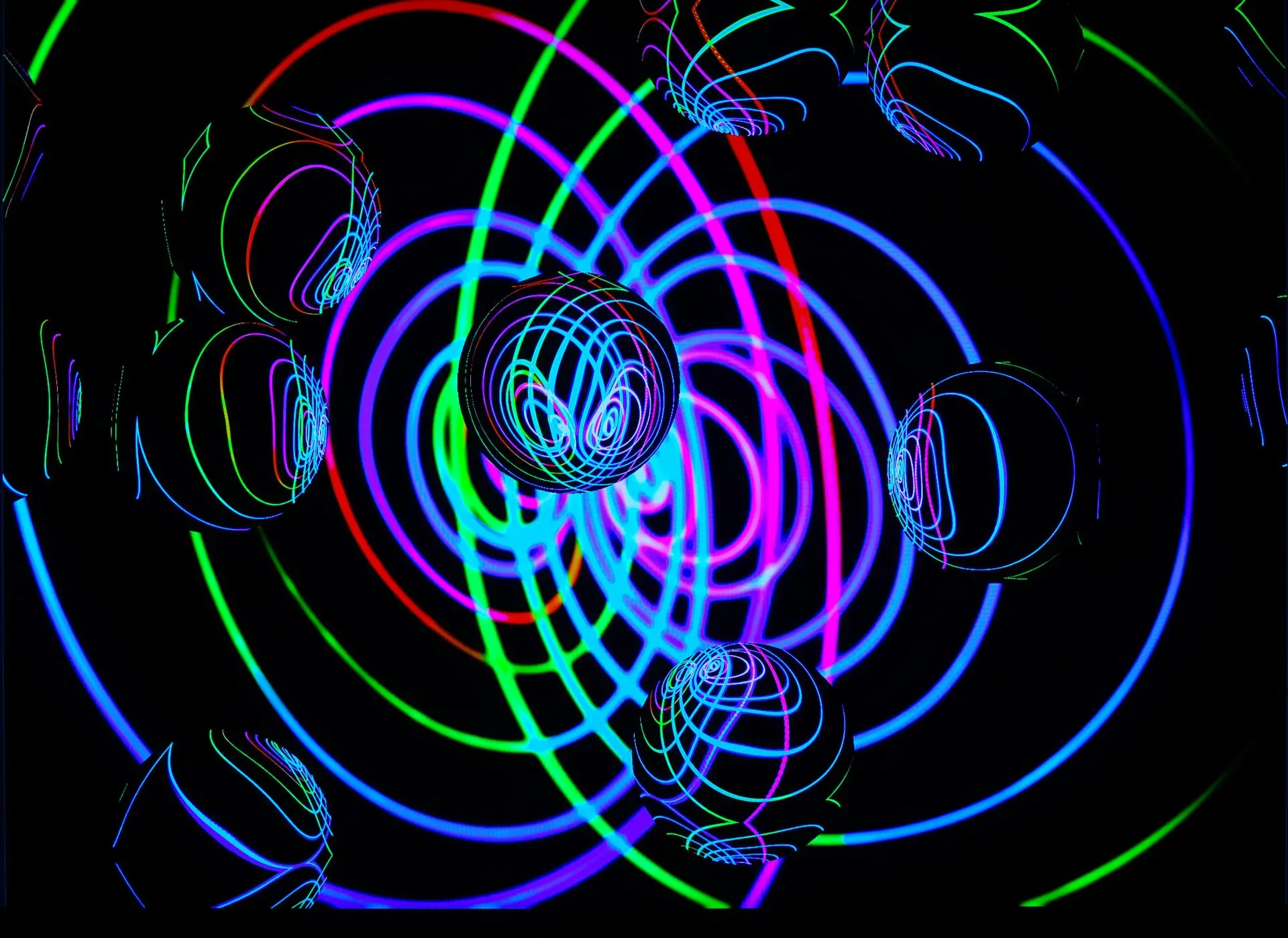Taoism and Gender Equality: Balance and Harmony

Looking for more amazing products? Check out our online store and explore our collection here! Happy shopping!
Before diving in, please note: This post is for informational purposes only. If you’d like to know more about how we approach topics, feel free to check out our friendly Disclaimer Page.
Hey there, amazing readers! 
We’re committed to delivering quality posts, and your support (even just sticking around despite the ads) means everything to us. So, bear with us, and thanks for helping us keep the good vibes rolling. Now, on to the fun stuff!
TRANSLATE BUTTON AT THE END OF THE ARTICLE
Introduction to Taoism and Gender Equality
Taoism, also known as Daoism, is an ancient Chinese philosophy and spiritual tradition that emphasizes living in harmony with the Tao, which translates to "The Way" or "The Path." Central to Taoist principles is the concept of balance and harmony, which are believed to bring about peace and fulfillment in one’s life.
Gender equality in Taoism is rooted in the belief that all beings, regardless of gender, possess a balance of yin and yang energies within themselves.
This balance is essential for achieving harmony with the universe and oneself.
The Taoist Principle of Yin and Yang
In Taoism, the principle of yin and yang is fundamental to understanding the nature of the universe and human existence.
Yin represents the feminine, passive, and receptive energy, while yang symbolizes the masculine, active, and assertive energy.
The interplay between yin and yang creates a dynamic equilibrium that is necessary for maintaining balance in all aspects of life.
Taoists believe that both yin and yang energies exist within every individual, regardless of gender, and that embracing and harmonizing these energies is crucial for personal growth and spiritual development.
Gender Roles in Taoism
Traditional Chinese society has historically been patriarchal, with defined gender roles that assign specific duties and expectations to men and women.
However, Taoism challenges conventional gender norms by highlighting the importance of balance and harmony between masculine and feminine energies.
While there may be traditional gender roles prescribed in society, Taoist teachings emphasize the fluidity and interconnectedness of yin and yang within each individual, allowing for a more nuanced understanding of gender beyond societal constructs.
Women in Taoism: Empowerment and Equality
Women have played significant roles in Taoist history, with female sages, scholars, and practitioners contributing to the development and spread of Taoist teachings.
Unlike some other belief systems, Taoism does not inherently restrict women from spiritual leadership or higher realms of knowledge.
In fact, Taoism recognizes the inherent balance and harmony that women bring to the world through their nurturing and intuitive qualities.
In Taoism, women are seen as equal partners in the pursuit of spiritual enlightenment and personal growth.
Balance and Harmony in Taoist Philosophy
The core tenet of Taoist philosophy is the pursuit of balance and harmony in all aspects of life.
This includes the balance of yin and yang energies within oneself, as well as harmony with nature, society, and the universe.
Gender equality is an essential component of this philosophy, as Taoists believe that true harmony can only be achieved through the recognition and acceptance of the complementary nature of masculine and feminine energies.
By embracing both aspects of the self, individuals can cultivate inner peace and alignment with the Tao.
Taoist Practices for Gender Equality
Taoist practices such as meditation, qigong, and Tai Chi are designed to cultivate inner harmony and balance between yin and yang energies.
These practices are accessible to individuals of all genders and serve as a pathway to self-discovery and spiritual growth.
By engaging in these practices, individuals can develop a deeper understanding of themselves and the world around them, leading to a more harmonious and balanced existence.
Taoist teachings encourage practitioners to transcend societal expectations and limitations related to gender, allowing for a more inclusive and egalitarian approach to personal development.
Challenges to Gender Equality in Taoism
Despite the inclusive philosophy of Taoism, challenges to gender equality still exist within certain sects and interpretations of the tradition.
Some Taoist communities may maintain traditional gender roles or restrict women from leadership positions based on cultural or historical biases.
Additionally, the influence of external societal norms and expectations can sometimes overshadow the core teachings of Taoism, leading to misconceptions or misinterpretations regarding gender equality.
Addressing these challenges requires a continued commitment to promoting inclusivity, diversity, and equality within Taoist practice and community.
Modern Interpretations of Gender in Taoism
In contemporary society, there is a growing awareness of the importance of gender equality and inclusivity in all aspects of life, including spiritual and philosophical traditions like Taoism.
Modern interpretations of Taoist principles emphasize the fluidity and interconnectedness of yin and yang energies within individuals, transcending rigid gender binaries.
This evolving understanding of gender allows for a more expansive and inclusive approach to Taoist practice, encouraging individuals of all genders to explore and embody the balance and harmony inherent in the Tao.
Female Taoist Leaders and Figures
Throughout history, there have been numerous female Taoist leaders, scholars, and practitioners who have made significant contributions to the development and dissemination of Taoist teachings.
These women have played key roles in preserving the wisdom of the tradition and challenging gender stereotypes within Taoist communities.
Female Taoist figures such as Sun Bu’er, Wang Chongyang, and Qiu Jin have inspired generations of followers with their wisdom, compassion, and spiritual insight.
Their stories serve as a testament to the empowerment and equality that women can achieve within the Taoist tradition.
Taoist Rituals and Gender Inclusivity
Taoist rituals and ceremonies often incorporate elements of balance and harmony that reflect the principles of yin and yang.
These rituals are designed to cultivate a sense of connection with the Tao and promote spiritual growth and development.
Inclusive of individuals of all genders, Taoist rituals honor the diversity and uniqueness of each individual while emphasizing the shared pursuit of harmony and enlightenment.
By participating in Taoist rituals, practitioners can experience a sense of unity and interconnectedness with the universe, transcending differences and embracing the universal principles of balance and harmony.
Taoist Texts on Gender Equality
Taoist texts such as the Tao Te Ching and the Zhuangzi contain valuable insights into the nature of gender and its relationship to balance and harmony.
These ancient texts explore the interconnectedness of yin and yang energies and offer guidance on how to cultivate inner peace and alignment with the Tao.
While some Taoist texts may reflect the gender norms of their time, many teachings emphasize the importance of embracing both masculine and feminine qualities within oneself.
By studying these texts with an open mind and heart, individuals can gain a deeper understanding of gender equality and its significance within the Taoist tradition.
The Future of Gender Equality in Taoism
As society continues to evolve and progress towards greater inclusivity and equality, the future of gender equality in Taoism looks promising.
With a renewed focus on diversity, empowerment, and social justice, Taoist communities are embracing a more inclusive and egalitarian approach to gender roles and relationships.
By promoting dialogue, education, and advocacy around gender equality, Taoists can work towards creating a more harmonious and balanced world where all individuals are valued and respected.
The principles of balance and harmony inherent in Taoism provide a solid foundation for promoting gender equality and social justice for generations to come.
Conclusion
In conclusion, Taoism offers a unique perspective on gender equality by emphasizing the balance and harmony of yin and yang energies within each individual.
Through the recognition of the interconnectedness of masculine and feminine qualities, Taoism promotes inclusivity, empowerment, and equality for people of all genders.
By embracing the core teachings of Taoism and cultivating inner harmony through spiritual practice, individuals can navigate the complexities of gender roles and relationships with grace and compassion.
As Taoist communities continue to evolve and adapt to the changing world, the future of gender equality in Taoism looks bright, promising a more harmonious and equitable society for all.

The Enlightenment Journey is a remarkable collection of writings authored by a distinguished group of experts in the fields of spirituality, new age, and esoteric knowledge.
This anthology features a diverse assembly of well-experienced authors who bring their profound insights and credible perspectives to the forefront.
Each contributor possesses a wealth of knowledge and wisdom, making them authorities in their respective domains.
Together, they offer readers a transformative journey into the realms of spiritual growth, self-discovery, and esoteric enlightenment.
The Enlightenment Journey is a testament to the collective expertise of these luminaries, providing readers with a rich tapestry of ideas and information to illuminate their spiritual path.
Our Diverse Expertise
While our primary focus is on spirituality and esotericism, we are equally passionate about exploring a wide range of other topics and niches 

To ensure we provide the most accurate and valuable insights, we collaborate with trusted experts in their respective domains 
Our blog originally focused on spirituality and metaphysics, but we’ve since expanded to cover a wide range of niches. Don’t worry—we continue to publish a lot of articles on spirituality! Frequently visit our blog to explore our diverse content and stay tuned for more insightful reads.
Hey there, amazing reader! 
Check out our store here and take a peek at some of our featured products below! Thanks for being awesome!










